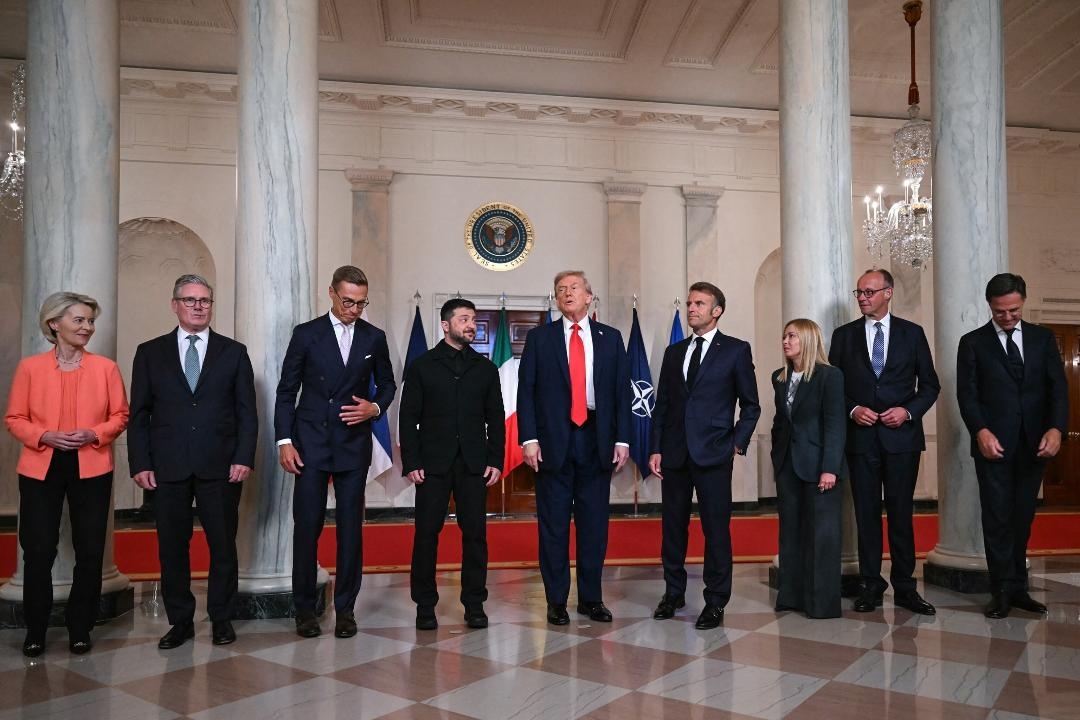Greece at the Crossroads: Will Europe Remain a Spectator in Trump’s Second Term?

Πηγή Φωτογραφίας: AP Photo//Greece at the Crossroads: Will Europe Remain a Spectator in Trump’s Second Term?
ECFR report: Europe under pressure
With Donald Trump returning to the White House in 2025, the transatlantic landscape has shifted sharply. A recent report by the European Council on Foreign Relations (ECFR), titled Reality Show: Why Europe Must Not Cave in Trump’s Culture War, warns that the European Union risks being reduced to a bystander—or worse, scenery—in a culture war largely scripted in Washington.
The ECFR’s findings are clear: political polarization at home, ideological alliances abroad, and a pattern of EU responses that are reactive rather than proactive have enabled Trump’s vision of a reshaped Europe under conservative currents. The report uses public opinion data across the 27 member-states to show both rising strategic awareness and persistent vulnerabilities.
Greece’s fragile position
Among the member states, Greece is particularly exposed. In the ECFR’s analysis, the country is described as a “tempter”, one that normalizes U.S. narratives rather than resisting them. This derives from several key factors:
- A historically strong dependency on the United States for security, reinforced by Greece’s strategic location in the Eastern Mediterranean and its role in NATO alliances.
- A relatively weak alignment between public sentiment and European identity. Despite high pro-European rhetoric among political elites, many Greeks retain distrust toward EU institutions—rooted in the memory of economic crises and austerity measures. A tendency among Greek leadership to prioritize stable bilateral relations with the U.S. over more assertive EU-led strategic autonomy. Concerns arise particularly over issues like trade policy, tariffs, and digital regulation, where Greek exposure to American investment and markets is significant.
The risk of passivity and the cost of “spectator status”
Greece’s current trajectory carries risks:
- If Europe plays along passively in the culture war—allowing external narratives to define its policy choices—then Greece may be cast as secondary in decisions that strongly affect its future.
- Tariff policies, trade tensions, and geopolitical alignments shaped by U.S. priorities can impact the Greek economy sharply, especially sectors like agriculture, tourism, and trade with the rest of Europe.
- Public disillusionment can deepen—when citizens see their country neither fully protected by the EU nor sovereignly steering its agenda, faith in institutions may erode further.

ukraine trump europe
Opportunities for Greece to reclaim agency
Nonetheless, the ECFR report suggests that Greece, and other EU states, still have levers they can pull:
- Rebuilding trust in EU institutions by ensuring that policy decisions deliver tangible benefits: fairness in trade, consistent regulation, and visible European solidarity during crises.
- Supporting European strategic autonomy—not as an abstract goal, but through concrete policies: increasing defense cooperation, participating in regulatory frameworks, and investing in shared digital infrastructure.
- Aligning with EU partners who are resisting the shift toward populist and nationalist models, and forming coalitions that defend liberal values, rule of law, environmental standards, and human rights.
Greece stands at a critical juncture. The ECFR report forcefully argues that Europe cannot afford to be the backdrop for someone else’s drama. If Greece does not assert its place within the EU—as a full actor, not a supporting role—it risks being written out of the parts that matter.
For Europe, the choice is equally stark: to be authors of its own narrative or to accept the whims of external scripts. For Greece, the question is whether it will reclaim its voice, or resign to echoing someone else’s.
Source: pagenews.gr
Διαβάστε όλες τις τελευταίες Ειδήσεις από την Ελλάδα και τον Κόσμο






Το σχόλιο σας